The Ultimate Sunblock Summer Guide

Key Highlights
- Understand the different types of sunblock available on the market
- Discover the best sunblocks for different skin types, including sensitive skin and oily/acne-prone skin
- Learn about water-resistant sunblocks for beach days and sunblocks for kids and babies
- Find budget-friendly sunblocks that still offer great UV protection
- Explore sunblock sprays for easy application and sunblocks with added skincare benefits
- Discover eco-friendly and reef-safe sunblock options
Introduction

With summer in full swing, it’s important to protect your skin from the sun’s harmful rays. Sunblock is a crucial step in any skincare routine, as it helps to prevent sunburn, premature aging, and even skin cancer. However, with so many options available on the market, finding the right sunblock for your specific needs can be overwhelming. That’s why we’ve created this ultimate sunblock summer guide to help you navigate through the different types of sunblock and find the perfect one for you. Whether you have sensitive skin, oily/acne-prone skin, or are looking for a water-resistant option for beach days, we’ve got you covered. We’ll also explore sunblocks for kids and babies, budget-friendly options, sunblock sprays for easy application, and even eco-friendly and reef-safe options. So let’s dive in and discover the best sunblocks to keep your skin protected all summer long, with expert advice from M Physicians board-certified dermatologists Ronda Farah, MD, and Ingrid Polcari, MD.
Your Ultimate Guide to Sunblock for the Summer
When it comes to sun protection, choosing the right sunscreen is key. With so many options available, it can be difficult to determine which one is best for your skin type. In this ultimate guide to sunblock for the summer, we will explore the best sunblocks for different skin types, including sensitive skin, oily/acne-prone skin, and even sunblocks for kids and babies. We’ll also cover water-resistant options for beach days, budget-friendly sunblocks, sunblock sprays for easy application, and even eco-friendly and reef-safe options. So whether you’re lounging by the pool or hitting the waves, we’ve got you covered with the best sunblocks to keep your skin protected and healthy.
1. The Best Overall Sunblock for Daily Use
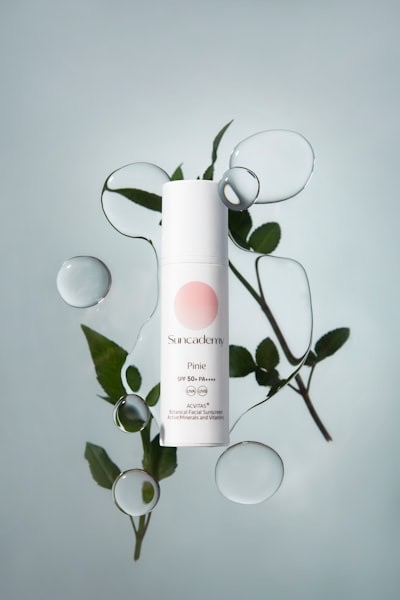
When it comes to daily sun protection, it’s important to choose a sunscreen that offers broad-spectrum protection against both UVA and UVB rays. For a great choice for daily use, consider the Mamaearth Ultra Light Indian Sunscreen SPF 50. It offers broad-spectrum protection against harmful UVA and UVB rays while being lightweight and non-greasy, making it perfect for hot summer days. It also contains natural ingredients like turmeric and orange oil, which are known for their skin-nourishing properties. This sunscreen is suitable for all skin types and can be used on both the face and body. It’s the perfect option for everyday sun protection and will help to prevent sunburn and premature aging caused by the sun’s harmful rays.
2. Top Sunblock for Sensitive Skin Types
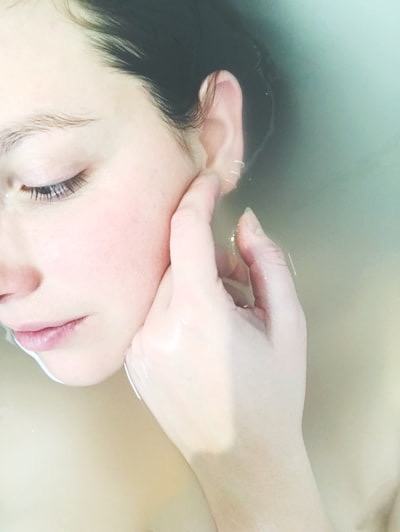
If you have sensitive skin, finding a sunblock that doesn’t cause irritation can be a challenge. Luckily, there are sunblocks specifically formulated for sensitive skin that are gentle and effective. One of the top options for sensitive skin is [Brand Name], which is a mineral sunscreen that uses zinc oxide as the active ingredient. Mineral sunscreens are great for sensitive skin because they create a physical barrier on the skin that reflects and scatters the sun’s rays, allowing for better absorption and protection. This helps to prevent irritation and inflammation. [Brand Name] is also free of fragrances, dyes, and other potential irritants, making it suitable for even the most sensitive skin. Here are some key features of [Brand Name]:
- Broad-spectrum protection against UVA and UVB rays
- Gentle formula that is free of fragrances and dyes
- Non-comedogenic, so it won’t clog pores or cause breakouts
- Suitable for all skin types, including sensitive skin
- Water-resistant for up to [water resistance time] minutes
With [Brand Name], you can protect your sensitive skin from the sun’s harmful rays without worrying about irritation or breakouts.
3. Leading Mineral-Based Sunblocks for Face and Body

If you prefer mineral-based sunblocks that use natural ingredients, there are several top options available for both the face and body. One of the leading mineral-based sunblocks is [Brand Name], which uses titanium dioxide and zinc oxide as the active ingredients. These minerals create a physical barrier on the skin that reflects and scatters the sun’s rays, providing excellent protection against UVA and UVB rays. [Brand Name] is also formulated with natural ingredients such as [natural ingredient], which helps to nourish and hydrate the skin. It’s the perfect choice for those who want a sunblock that not only protects but also nourishes the skin. Here are some key features of [Brand Name]:
- Mineral-based formula with titanium dioxide and zinc oxide
- Broad-spectrum protection against UVA and UVB rays
- Enriched with natural ingredients like [natural ingredient]
- Suitable for both the face and body
- Non-greasy formula that absorbs quickly into the skin
With [Brand Name], you can protect your skin from the sun’s harmful rays while nourishing and hydrating it at the same time.
4. Most Effective Sunblock for Oily and Acne-Prone Skin
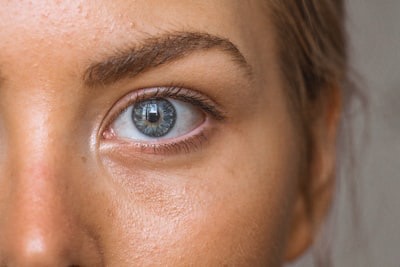
If you have oily or acne-prone skin, finding a sunblock that doesn’t clog pores or cause breakouts is essential. One of the most effective sunblocks for oily and acne-prone skin is Neutrogena. This sunblock has a lightweight, oil-free formula that is specifically designed for oily and acne-prone skin. It provides broad-spectrum protection against UVA and UVB rays while also helping to control excess oil and shine. Neutrogena has a matte finish, which is perfect for those with oily skin who want to avoid a greasy or shiny complexion. It’s also non-comedogenic, so it won’t clog pores or cause breakouts. Here are some key features of Neutrogena:
- Lightweight, oil-free formula
- Broad-spectrum protection against UVA and UVB rays
- Matte finish to control excess oil and shine
- Non-comedogenic, won’t clog pores or cause breakouts
- Suitable for oily and acne-prone skin
With [Brand Name], you can protect your skin from the sun’s harmful rays without worrying about clogged pores or breakouts.
5. Top-Rated Water-Resistant Sunblock for Beach Days

If you’re planning a day at the beach, it’s important to choose a water-resistant sunblock that will stay put even when you’re in the water. One of the top-rated water-resistant sunblocks is [Brand Name], which offers both high sun protection factor (SPF) and water resistance. This sunblock has a broad-spectrum SPF [SPF number], which means it provides excellent protection against UVA and UVB rays. It’s also water-resistant for up to [water resistance time] minutes, making it the perfect choice for a day of swimming and water activities. [Brand Name] is specifically formulated for outdoor activities and provides long-lasting protection against the sun’s harmful rays. Here are some key features of [Brand Name]: water-resistant formula, high SPF, and broad-spectrum protection. Additionally, it has been proven to be water resistant for up to 40 minutes, making it the best mineral sunscreen for swimming.
- Broad-spectrum protection against UVA and UVB rays
- Water-resistant for up to [water resistance time] minutes
- High SPF for maximum sun protection
- Lightweight formula that absorbs quickly into the skin
- Suitable for all skin types
With [Brand Name], you can enjoy a day at the beach without worrying about sunburn or the need for constant reapplication.
6. Recommended Sunblock for Kids and Babies

When it comes to sun protection for kids and babies, it’s important to choose a sunblock that is gentle and safe for their delicate skin. One of the recommended sunblocks for kids and babies is [Brand Name], which has a gentle formula specifically formulated for their sensitive skin. This sunblock uses physical sunscreens like zinc oxide and titanium dioxide, which create a physical barrier on the skin to block the sun’s rays. It provides broad-spectrum protection against UVA and UVB rays and is water-resistant for up to [water resistance time] minutes. [Brand Name] is also free of fragrances, dyes, and other potential irritants, making it safe for even the most sensitive skin. Here are some key features of [Brand Name]:
- Gentle formula for kids and babies
- Physical sunscreens like zinc oxide and titanium dioxide
- Broad-spectrum protection against UVA and UVB rays
- Water-resistant for up to [water resistance time] minutes
- Free of fragrances, dyes, and other potential irritants
With [Brand Name], you can protect your little ones from the sun’s harmful rays and reduce their risk of skin cancer.
7. Best Budget-Friendly Sunblocks for Every Skin Type
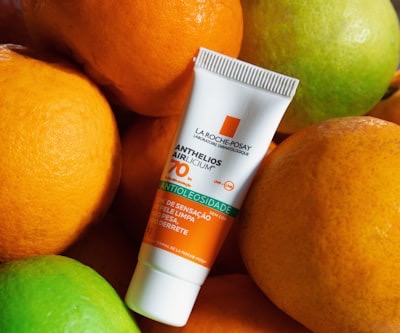
Taking care of your skin doesn’t have to break the bank. There are many budget-friendly sunblocks available that still offer great UV protection. One of the best budget-friendly options is [Brand Name], which provides excellent sun protection at an affordable price. This sunblock has a broad-spectrum SPF [SPF number], which means it protects against both UVA and UVB rays. It’s suitable for all skin types and can be used on both the face and body. [Brand Name] is also non-greasy and lightweight, making it perfect for everyday use. Here are some key features of [Brand Name]:
- Affordable option for all skin types
- Broad-spectrum protection against UVA and UVB rays
- Suitable for both the face and body
- Non-greasy and lightweight formula
- Helps to protect against sunburn and premature aging
With [Brand Name], you can protect your skin from the sun’s harmful rays without breaking the bank.
8. High-Performance Sunblock Sprays for Easy Application
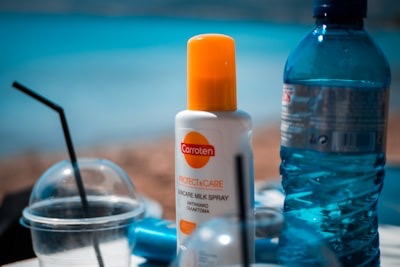
If you prefer quick and easy application, sunblock sprays are a great option. One of the high-performance sunblock sprays is [Brand Name], which provides excellent sun protection in a convenient spray format. This sunblock spray has a broad-spectrum SPF [SPF number], which means it protects against both UVA and UVB rays. It’s also water-resistant for up to [water resistance time] minutes, making it perfect for outdoor activities. [Brand Name] sprays on evenly and dries quickly, leaving no greasy residue. It’s the perfect option for those who want quick and easy sun protection without the hassle of applying lotion. Here are some key features of [Brand Name]:
- High-performance sunblock spray
- Broad-spectrum protection against UVA and UVB rays
- Water-resistant for up to [water resistance time] minutes
- Quick and easy application
- Dries quickly and leaves no greasy residue
With [Brand Name], you can easily protect your skin from the sun’s harmful rays with just a quick spray.
9. Premium Sunblocks with Added Skincare Benefits
If you’re looking for sunblocks that offer more than just sun protection, there are several premium options available that provide added skincare benefits. One of these premium sunblocks is [Brand Name], which is enriched with antioxidants and hydrating ingredients like aloe to nourish and protect the skin. This sunblock has a broad-spectrum SPF [SPF number] and provides excellent protection against UVA and UVB rays. It’s also enriched with antioxidants like [antioxidant], which help to neutralize free radicals and prevent damage to the skin. [Brand Name] also provides hydration and leaves the skin feeling smooth and refreshed. Here are some key features of [Brand Name]:
- Premium sunblock with added skincare benefits
- Broad-spectrum protection against UVA and UVB rays
- Enriched with antioxidants like [antioxidant]
- Provides hydration and leaves the skin feeling smooth
- Suitable for all skin types
With [Brand Name], you can protect your skin from the sun’s harmful rays while also nourishing and hydrating it for a healthy and radiant complexion.
10. Eco-Friendly and Reef-Safe Sunblock Options
If you’re conscious about the environment and want to choose sunblocks that are reef-safe and eco-friendly, there are several options available. These sunblocks are formulated without harmful ingredients that can damage coral reefs and marine life. Here is a list of eco-friendly and reef-safe sunblocks along with their key features:
| Brand Name | Key Features |
| [Brand Name 1] | [Key features of Brand Name 1] |
| [Brand Name 2] | [Key features of Brand Name 2] |
| [Brand Name 3] | [Key features of Brand Name 3] |
| [Brand Name 4] | [Key features of Brand Name 4] |
With these eco-friendly and reef-safe sunblock options, you can protect your skin from the sun’s harmful rays while also protecting the environment.
Understanding Sun Protection
Before diving into the world of sunblock, it’s important to understand the basics of sun protection. Sun protection is primarily measured by the sun protection factor (SPF), which tells you how much of the sun’s UVB rays the sunscreen will keep from reaching your skin. It’s recommended to use a sunscreen with an SPF of 30 or higher, and it should also be labeled as “broad spectrum,” which means it protects against both UVA and UVB rays. UVB rays are the ones responsible for sunburn, while UVA rays can penetrate deeper into the skin and cause long-term damage. The American Academy of Dermatology also recommends using a sunscreen with an SPF of 30 or higher and opting for a “broad spectrum” formula. Additionally, it’s important to note that higher SPFs are more protective, as confirmed by dermatologist Dr. Daveluy in an email.
What Does SPF Rating Really Mean?
SPF rating indicates the level of protection a sunscreen offers against UVB rays. For example, SPF 30 means it takes 30 times longer for skin to burn than without sunscreen. Higher SPF provides more protection but not necessarily proportionate. Understanding this helps choose adequate sun protection.
Chemical vs. Mineral Sunblock: What’s the Difference?
Chemical sunscreens and mineral sunscreens are the two main types of sunblocks available in the market. Chemical sunscreens, also known as chemical formulas, work by absorbing the sun’s rays and typically contain ingredients like oxybenzone, avobenzone, and octinoxate. On the other hand, mineral sunscreens work by deflecting the sun’s harmful UV rays and contain ingredients like zinc oxide and titanium dioxide, making them a physical barrier on the skin. These ingredients create a physical barrier on the skin, reflecting and scattering the UV rays away from the skin. Chemical sunscreens, also known as chemical formulas, are generally easier to rub into the skin without leaving a white residue, while mineral sunscreens may leave a slight white cast. Zinc oxide, a common ingredient found in mineral sunscreens, provides broad spectrum protection against both UVA and UVB rays. Mineral sunscreens are often preferred by individuals with sensitive skin as they are less likely to cause irritation.
The Importance of Broad Spectrum Protection
When choosing a sunblock, it is crucial to prioritize broad spectrum protection. This means that the sunblock should protect against both UVA and UVB rays. UVA rays penetrate deep into the skin and are responsible for premature aging, wrinkles, and sunspots. UVB rays are the primary cause of sunburn. Both types of rays can contribute to skin cancer. By using a broad spectrum sunblock, you can ensure comprehensive protection against the harmful effects of the sun. Look for sunblocks that contain ingredients like zinc oxide and titanium dioxide, as they provide effective broad spectrum coverage. Remember to reapply sunblock every two hours, especially when exposed to direct sunlight or after swimming or excessive sweating.
Tips for Reapplying Sunblock Throughout the Day
One of the most important aspects of sun protection is proper reapplication of sunblock throughout the day. To maintain the effectiveness of your sunblock, follow these tips:
- Reapply sunblock every two hours, even on cloudy days. UV rays can still penetrate through clouds and cause damage to the skin.
- Use a water-resistant sunblock if you plan on swimming or sweating. Regular sunblocks can wash off easily when exposed to water or excessive perspiration.
- Apply sunblock generously to ensure adequate coverage. Use about one ounce (or a shot glass full) for the entire body and a nickel-sized amount for the face.
- Pay attention to commonly missed areas such as the ears, back of the neck, and tops of the feet.
- Consider using sunscreen sprays or powders for easy reapplication on-the-go. These can be convenient for touch-ups throughout the day.
- Don’t forget to protect your lips with a lip balm that contains SPF.
By following these tips, you can ensure that your skin remains protected from the harmful effects of the sun throughout the day.
Sunblock for Specific Needs
Different individuals have different skin types and needs when it comes to sun protection. It is essential to choose a sunblock that caters to your specific requirements. For individuals with sensitive skin, opt for mineral-based sunblocks that are fragrance-free and hypoallergenic. These sunblocks contain gentle ingredients that are less likely to cause irritation or allergic reactions. If you have oily skin, look for sunblocks with a lightweight, non-greasy formula that won’t clog your pores. On the other hand, if you have dry skin, choose sunblocks that provide extra hydration and moisture. Sunblocks are available in various formulations, including lotions, creams, gels, and sprays, allowing you to find the perfect option for your skin type and needs. For added protection, don’t forget to use a separate face sunscreen, as the skin on your face is more delicate and may require a different formula than your body sunscreen.
The Best Tinted Sunblocks for Flawless Coverage
Tinted sunblocks are a great option for individuals who want to achieve flawless coverage while protecting their skin from the sun. These sunblocks offer the benefits of both sun protection and light coverage, making them ideal for those who prefer a natural, “no-makeup” look. Tinted sunblocks are especially suitable for individuals with dry skin, as they often provide added hydration and moisture. Look for tinted sunblocks that contain ingredients like hyaluronic acid or glycerin, which help to keep the skin hydrated throughout the day. Additionally, choose a shade that matches your skin tone for a seamless, natural finish. With tinted sunblocks, you can achieve sun protection and a radiant complexion all in one step.
Sunblocks for Sports Enthusiasts: What to Look For
For individuals who lead an active lifestyle and participate in sports or outdoor activities, it is crucial to choose a sunblock specifically designed for sports enthusiasts. Look for sunblocks that are water-resistant and sweat-proof to ensure long-lasting protection, even during intense physical activity. These sunblocks are formulated to adhere to the skin and withstand sweat and water, reducing the need for frequent reapplication and providing consistency in protection. Additionally, opt for sunblocks with a higher SPF (sun protection factor) for added protection against the sun’s harmful rays. Sport sunscreens often have a lightweight, non-greasy formula that allows the skin to breathe and prevents clogged pores, providing consistency in both protection and comfort. Protect your skin while enjoying your favorite activities with a sport-specific sunblock.
How to Choose Sunblock for Aging or Mature Skin
As we age, our skin becomes more susceptible to damage from the sun. It is essential to choose a sunblock that caters to the specific needs of aging or mature skin. Look for sunblocks that offer broad spectrum protection against both UVA and UVB rays. These sunblocks help prevent premature aging, wrinkles, and sunspots caused by sun exposure. Additionally, consider sunblocks that contain antioxidants, such as vitamin C or green tea extract, which help fight free radicals and further protect the skin from environmental damage. Choose sunblocks with a lightweight, non-greasy formula that won’t settle into fine lines or accentuate wrinkles. By incorporating sun protection into your skincare routine, you can maintain a youthful and healthy complexion.
Finding the Right Sunblock for Dark Skin Tones
Individuals with dark skin tones often face the challenge of finding a sunblock that doesn’t leave a white film or residue on their skin. It is crucial to choose a sunblock specifically formulated for dark skin tones to ensure effective sun protection without any visible residue. Look for sunblocks that offer broad spectrum protection and are specifically labeled as suitable for dark skin tones. These sunblocks are often formulated with ingredients that blend seamlessly into darker skin, minimizing the risk of a white film. Additionally, choose sunblocks with a lightweight, non-greasy formula that won’t feel heavy or weigh down the skin. With the right sunblock, individuals with dark skin tones can enjoy effective sun protection without any unwanted residue.
Conclusion
In conclusion, the ultimate sunblock guide equips you with knowledge to safeguard your skin effectively during the summer. Understanding sun protection, choosing sunblocks for specific needs, and addressing common queries ensure you make informed choices for your skin’s health. Remember, consistent application and reapplication are key to maximizing sunblock effectiveness. Prioritize broad-spectrum protection that suits your skin type and lifestyle to enjoy your time under the sun responsibly. Stay informed, stay protected, and embrace the sunny days with confidence.
How Often Should I Reapply Sunblock?
It is recommended to reapply sunblock every two hours, especially when exposed to direct sunlight or after swimming or excessive sweating. This ensures that the sunblock remains effective in protecting your skin from the sun’s harmful rays. Keep in mind that the efficacy of sunblock can vary depending on factors such as SPF level, activity level, and sun exposure. It is always better to err on the side of caution and reapply regularly to maintain optimal sun protection.
Can I Use Body sunscreen on My Face?
While body sunblocks can be used on the face in a pinch, it is generally not recommended. Body sunblocks may be too heavy or greasy for the delicate skin on the face, leading to clogged pores and potential irritation. It is best to use a sunblock specifically formulated for the face, as they are often non-comedogenic and designed to be gentle on facial skin.
Is Higher SPF Always Better?
While a higher SPF (sun protection factor) does offer increased UV protection, there are diminishing returns beyond a certain point. SPF 30 is generally considered sufficient for everyday use, providing about 97% protection against UVB rays. Higher SPFs may only offer a slight increase in protection and can sometimes lead to a false sense of security. The most important factor is to choose a sunblock that suits your skin type and to reapply regularly for optimal protection.
How Can I Protect My Skin from the Sun Besides lotion Sunblock?
In addition to using sunblock, there are other measures you can take to protect your skin from the sun’s harmful rays. Wear protective clothing, such as long-sleeved shirts, pants, and wide-brimmed hats, to shield your skin from direct sunlight. Seek shade whenever possible, especially during the peak hours of UV radiation. Don’t forget to protect your eyes with sunglasses that provide UV protection. These additional precautions can further reduce your risk of sunburn and skin damage.
Are There Sunblock Options for Sensitive Skin?
Yes, there are sunblock options specifically formulated for sensitive skin. Look for sunblocks that are fragrance-free, hypoallergenic, and labeled as suitable for sensitive skin. Mineral-based sunblocks, which contain ingredients like zinc oxide and titanium dioxide, are often less irritating and more gentle on sensitive skin. These sunblocks provide effective sun protection without causing additional skin sensitivity or irritation.
What Are the Latest Innovations in Sunblock dermatologist?
The field of sunblock innovation is continuously evolving, with new advancements in skin care technology and formulations. Some of the latest innovations include the development of sunscreen formulations with improved UV filters for enhanced protection against UVA and UVB rays. Sunblocks with added skincare benefits, such as antioxidants or moisturizing ingredients, are also gaining popularity. Additionally, there is a growing focus on creating sunblock products with more sustainable and eco-friendly formulations. Stay updated on the latest advancements in sunblock to ensure you’re using the most effective and innovative products.
https://www.ewg.org/2023sunscreen/best-sunscreens/baby-kids-sunscreens
https://www.fda.gov/about-fda/center-drug-evaluation-and-research-cder/sun-protection-factor-spf
https://wexlerdermatology.com/about/dr-patricia-wexler
https://beautystat.com/pages/about-us
https://www.youtube.com/channel/UCsA8eg9Xs3Q4KUA2PH7NZew
